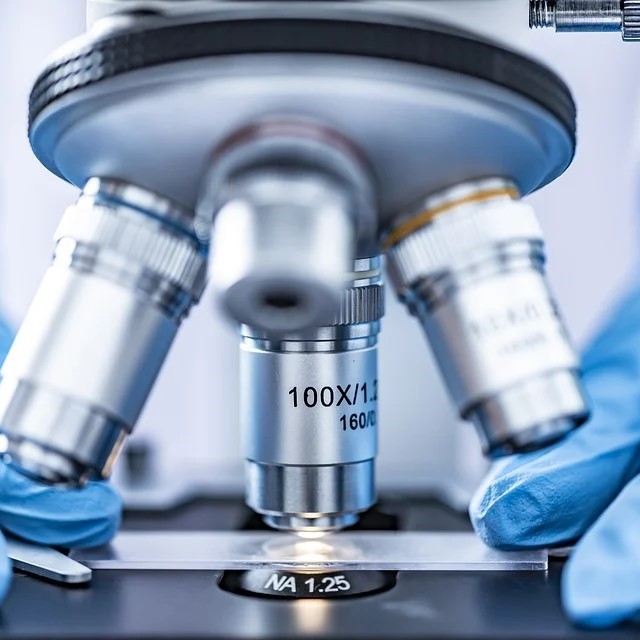Investment Strategies
Reversing Low Testosterone – The Investment Case

With a big shift towards preventative healthcare as public and private budgets come under strain, an investment firm talks about the challenge of low testosterone levels in many part of the world, why it matters, and what to do about it.
In the investment areas for which firms are tapping wealth managers for capital, an area that might not immediately grip attention is treatment for raising testosterone.
Low levels of testosterone – this is a metabolic hormone – is a major health problem, and not just among males. About 300 million people worldwide have low “T” and “free T levels.” (“Free testosterone” is where the T is not linked to a protein.)
Poor diet, lack of regular exercise, stress, pollution and other factors are blamed for low T levels. And such low T levels can contribute to fatigue, “brain fog," loss of muscle mass and libido, and overall decreased quality of life.
Himanshu Shah, founder of Shah Capital (founded in 2005), and founder and executive chairman of Marius Pharmaceuticals – focusing on testosterone – thinks the testosterone condition, and solutions for it, is an important investment area. Marius is headquartered in Raleigh, North Carolina.
He is keen to engage with wealth managers, private banks and family offices on this issue to encourage more capital to be deployed internationally into the space.
Shah Capital runs a $600 million US long-biased fund. It rose 32 per cent in 2024 and has averaged 17 per cent in returns per annum in the last 10 years. The fund has been closed to outside capital since 2021.
Marius, meanwhile, has developed an oral testosterone pill, Kyzatrex. In January 2021, Marius appointed Shah and Shalin Shah as co-CEOs.
“Marius is considering a strategic capital raise to further fuel expansion and our primary consideration would be healthcare-focused funds as well as family offices,” Shah told this news service in an interview. “It [testosterone treatment] is about the quality of life. Not many compounds are as safe and helpful as testosterone is,” Shah said. This is not just an issue affecting men – it can also help female health, he said.
“People in their late 40s and 50s say that 'I don’t have as much energy as I used to have' – low T is one of the reasons,” Shah continued. People who get their T levels checked can be surprised at how low these levels are.
This story gels with how wealth managers, including family offices are important exemplars of "patient capital" – vital for investment into areas such as medicines, including new treatments, medical technology ("medtech") and more. See examples of such commentary here, here and here.
The problem
According to Mount Sinai, the US hospital, “normal measurements”
for these tests are as follows: Male: 300 to 1,000 nanograms per
decilitre (ng/dL) or 10 to 35 nanomoles per litre (nmol/L);
female: 15 to 70 ng/dL or 0.5 to 2.4 nmol/L.”
Mount Sinai adds that decreased total testosterone may be due to chronic illness; a problem with areas of the brain that control hormones (hypothalamus); low thyroid function; delayed puberty; diseases of the testicles (trauma, cancer, infection, immune, iron overload); benign tumour of the pituitary cells that produce too much of the hormone prolactin; too much body fat (obesity); sleep problems (obstructive sleep apnoea), and chronic stress from too much exercise (overtraining syndrome).
Other conditions can be related to low T levels, Shah said. For example, in the US, about 88 per cent of people have some sort of metabolic syndrome disease, and most have diseases such as being pre-diabetic and diabetic due to inactivity, poor diet including higher consumption of processed food. Testosterone is “bi-directional” with most metabolic conditions such as obesity, type 2 diabetes, depression, cognitive decline, and insulin resistance.
A problem, Shah said, is that in many countries, knowledge among the medical community of this area is poor.
“Medical professionals don’t know enough about hormones as about 80 per cent don’t keep up with new scientific literature and studies,” he said.
Kyzatrex
Kyzatrex is an FDA-approved oral testosterone capsule. This
first-shot approval was the culmination of 13 years of R&D
and clinical trials, Shah said. Marius' Kyzatrex is
approved in the UK, and Canada. The firm is also
evaluating the Asia-Pacific, Middle East and North Africa
regions.
Shah said Kyzatrex is “firmly in the market” with major partnerships on the horizon for 2026. “We see the potential for 1 million-plus patients globally on Kyzatrex in three to five years,” he said.
Delivering such a treatment will have major payoffs, Shah said.
“It is important to educate both patients and providers on the importance of Testosterone. Twenty years ago, no one understood how important Vitamin D is to the body, also a hormone. If there was no stigma associated with testosterone, this would be the most valuable molecule on the planet today,” he said.
“Healthcare is moving towards preventive care. There is a massive consumerisation of healthcare coinciding with this movement and hence our direct-to-consumer model focus,” Shah added.